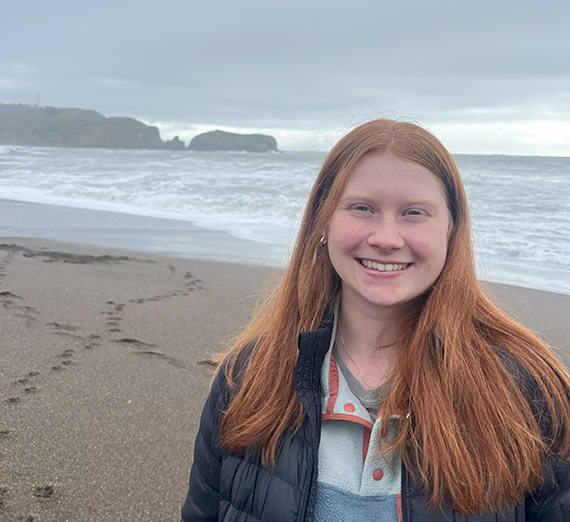Amplifying Movements: Helping Patients Progress After Trauma

Greta Crumley ('27), a human physiology major from Sacramento, California, is one of eight Gonzaga students selected to participate in the 2025 UW-GU Summer Research program, which aims to make students more aware of biomedical careers and create a pipeline of future biomedical researchers. Here is her story.
Through the University of Washington-Gonzaga University Summer Research Program, I have been fortunate enough to work with Fatma Inanici, M.D., Ph.D., in the Amplifying Movement and Performance Lab at the UW this summer. My time here has been both eye-opening and mentally stimulating as I’ve been exposed to the realm of biomedical research, specifically working with human subjects.
I joined the lab in the middle of a pilot study on the effects of noninvasive, electrical spinal cord stimulation for patients with Multiple Sclerosis or those who have suffered a stroke, to restore motor function of the upper extremities. I was struck by the work that Dr. Fatma’s lab had previously done to restore upper extremity function in people with a spinal cord injury which has led to an FDA-approved device to be used in hospitals.
What I’ve loved about human research is that you get instant feedback on how they are feeling and what changes they have noticed during the treatment. While the trials Dr. Fatma is doing take over four months per participant, you stay motivated through the gradual progress that ends up making a big difference in the end. I was fortunate enough to arrive on the first day of assessments for one of the participants before we started stimulation sessions and have witnessed the physiological impact that the treatment is having both during and after the sessions. I’ve also felt that the Human Physiology department’s curriculum at Gonzaga has set me up for success in the biomedical field by exposing us to lab equipment and terminology that I have used with participants.
By working alongside the therapists and researchers involved in this study, I’ve been inspired by their commitment to helping others and working to challenge the limits of current treatments that are available. I had previously been focused on the possibility of giving lifesaving care in the hospital, but I’ve learned the importance of post-acute care and the need for therapies and treatments to promote recovery after a traumatic event or diagnosis. The Amplifying Movements Lab is continuously working to improve quality of life for people with disabilities and develop treatments that can be effectively used in the hospital and at home to increase independence.
This summer experience has motivated me to continue pursuing research alongside my aspirations of becoming an emergency medicine physician because of the impact it can make in people’s lives. I am so appreciative to the UW-GU Health Partnership for giving me this opportunity, and I look forward to applying this experience towards my future endeavors.
About the Programs
- Learn about Greta’s pathway to medicine, the Human Physiology major.
- See more about the UW-GU Health Partnership here.
